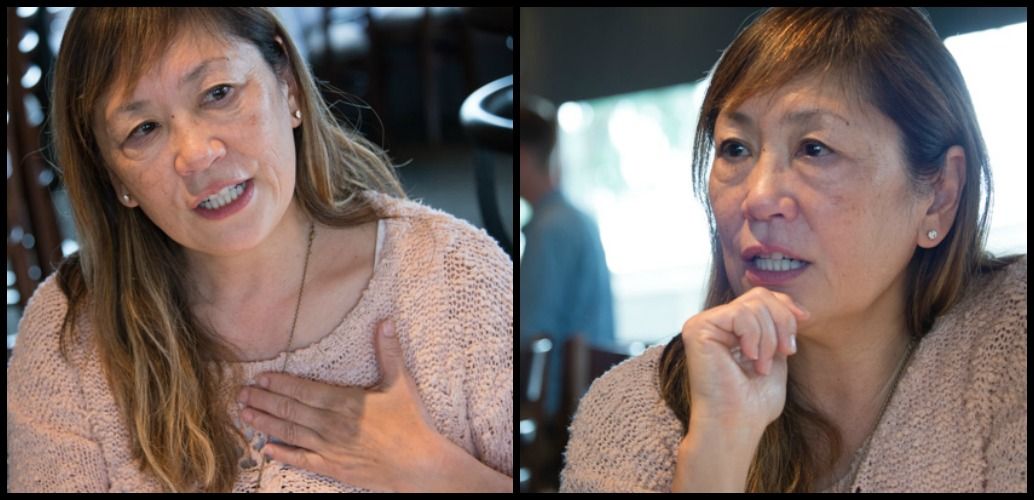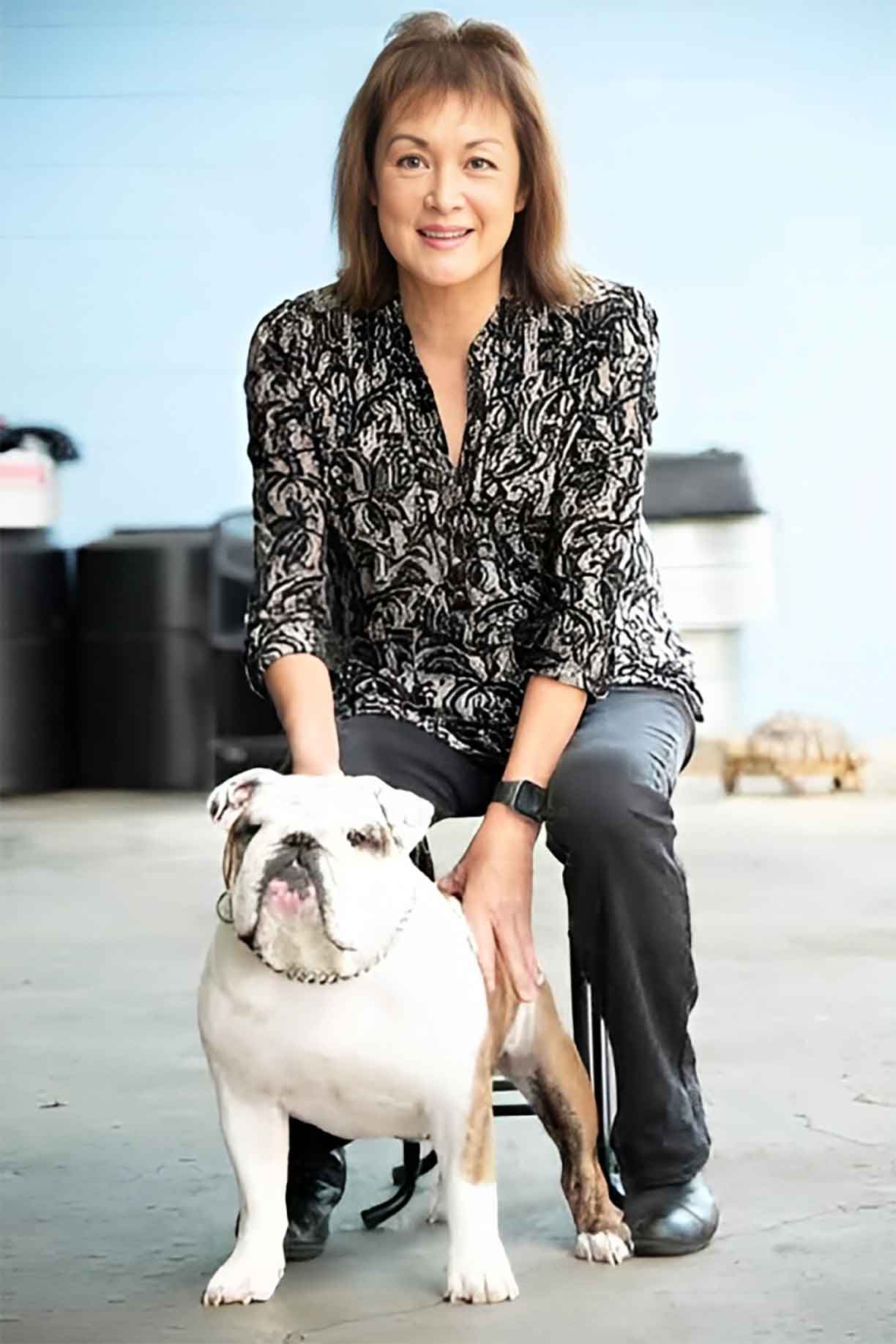As part of a lifestyle and aging series, we’re working with renowned photographer Terry Lorant to showcase inspirational leaders in the industry. The first installment in the series is a two-part spotlight on Joan Haratani, a partner with Morgan Lewis who has been recognized as one of the “Top 100 Lawyers in California” by the Daily Journal. Joan will also be one of three panelist speakers at Amazing Care Network’s upcoming Afternoon Tea With Amazing Leaders in Oakland on October 15th. RSVP to attend the tea here.
Joan Haratani: Cora and I have been friends since our days on the board of the Asian Pacific Fund years ago. One of the dominant themes in our friendship has been this concept of care-giving. Asian women, at least the ones that we know, seem to be particularly attuned to issues around the family and taking care.
My father died when I was very young, so care-giving has always been a big part of my adult consciousness. Cora too, has dealt with a number of family health tragedies, and so we just became very close friends who shared a great passion for humanity, a deep commitment to helping each other, and for helping other people. The best in human spirit often comes out in the context of care-giving.
We were talking about how it is that women, more likely than not, either will outlive their spouses or are single, like I am. And what do we do with that issue? We take care of others, but who is going to take care of us when it’s our time? One day Cora said, “What about this crazy idea: how do we create a network of like-minded women who will be able to commit to helping each other?” It was the Amazing Care Network seedling. In a loosely organized, networked way, to offer support; perhaps it’s emotional support, other times it might be the ability to offer financial support, perhaps even anonymously. Maybe someone needs funds to pay a caregiver. You could do as much or as little as you might want or be able to do. The ability to help people anonymously with money was for me an intriguing idea because I’ve been lucky to have a successful career and one of the gifts I think I bring to the table is the ability to shine this light called money. The ability to give money to people who need it without them feeling ashamed or embarrassed and maintaining their dignity around life and independence, was very intriguing. So, we began conversations that evolved into the idea that is now known as the Amazing Care Network. Cora brought other like-minded women together. It’s been really fun to watch this seed form in her mind, and as Cora is the expert master gardener of all time, she takes this amazing hybrid seed that no one else has created and she gently grows this little twig that becomes this little tree that becomes this huge, shady, beautiful living creature. So, I’ve been a part of the process since its inception. The Amazing Care Network, one of Cora’s many babies…and it’s in adolescence now. It’s been amazing to witness, and it’s such a great service. Whenever I mention the idea to people they are always so happy to learn that there’s a network like this in existence.
My dearly beloved aunt, whose 97th birthday would have been this month, was such a strong figure in my life. She went through the internment camps. I really miss her. She lived all of her post-internment life in East Palo Alto. (It was one of the few places that would sell property to Japanese Americans.) I remember taking her out for her birthday a year ago Friday, and as soon as I saw her, I could tell that she was gravely ill. I could just feel it. And sure enough, she was diagnosed a week later with inoperable sarcoma. So, we moved her into my mom and dad’s house in Menlo Park. And I began the process of straddling life as a full-time litigation partner in San Francisco and taking care of my beloved aunt. There were a lot of nights sleeping on the floor near her bed, or sleeping on the couch. At first she could kind of hobble her way to the bathroom. But soon, we had to hire 24-hour care-giving. It’s definitely a challenge to care-give for somebody at a distance. You just have to figure out how to get some grace from your work, how to work remotely. (I ended up moving into my Palo Alto office.) And how to get a lot less sleep, and how to internally rally, so that you know that the purpose of your life, for a short time, is not really for you. It’s for them. You just have to know that. You have to embrace it, love it, not resent it. I would do the whole thing over again in a heartbeat. The whole focus of my life was to make every moment of her life as enjoyable as possible. And pain-free. It’s really hard. Love doesn’t know selfishness. It knows giving. To see her smile or eat would be all I needed.
When I graduated from college, my dad got diagnosed with CLL, (chronic lymphatic leukemia). I was going to go to law school and he asked me to take a year off to take care of him. So, I was his primary care-giver for a year before law school. I think that really conditioned me at a young age (I must have been 21) to what care-giving really meant. That was my baptism by fire. So when it came to be my aunt’s time last year, I was very aware of the commitment it took and kind of the reserve that you need and the single focus that you need. I was a kid when my dad was sick, so I was more conflicted. It was just harder, because I was a kid, and he was my dad. With my aunt, it was a privilege to be a part of her transition. I really saw the beauty in it. We had wonderful talks. We would take her on a walk every day in her wheelchair, and for the holidays I dressed up the wheelchair with tinsel, and Christmas lights, ornaments…wherever we went, people would stop and take pictures of her! We made it fun.
to be continued…
Terry Lorant is a renowned photographer with over 20 years of documentary experience. Her recent assignments include work with the Global Fund for Women in Uganda, Adobe Systems Inc., and Boston Scientific/Stryker. You can learn more about Terry and her work on her website.









Leave A Comment
You must be logged in to post a comment.